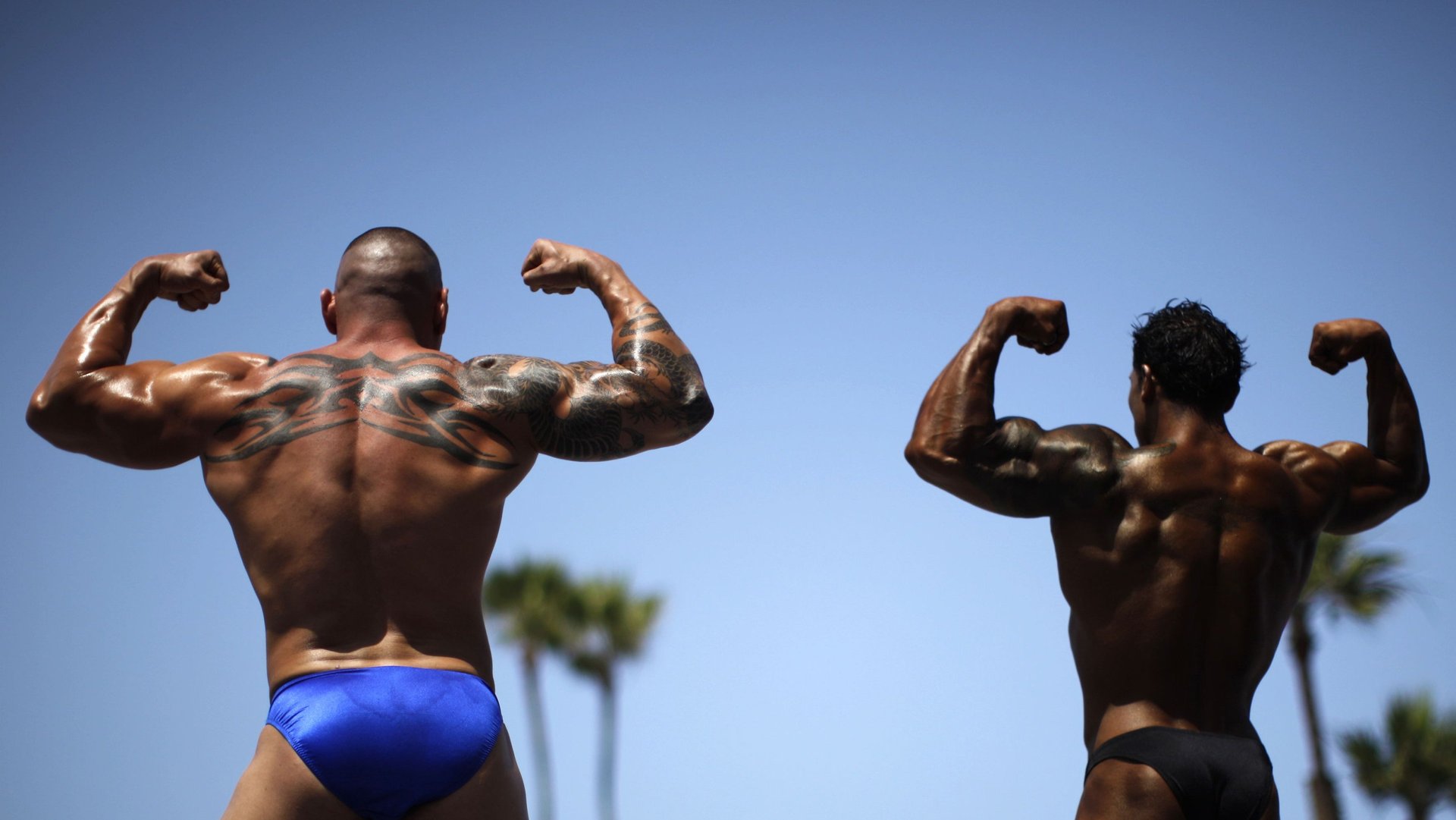Masculine men don’t cut it for many women
Evolutionary psychology has long held that humans evolve to maximize reproductive success. By that logic, men would be more attracted to highly feminine women whose high estrogen levels made them more fertile, and women would go for masculine-looking men with strong immune systems to pass onto their offspring.


Evolutionary psychology has long held that humans evolve to maximize reproductive success. By that logic, men would be more attracted to highly feminine women whose high estrogen levels made them more fertile, and women would go for masculine-looking men with strong immune systems to pass onto their offspring.
But those commonly-held assumptions hadn’t been fully tested, until a new study (pdf) in the latest issue of the American journal Proceedings of the National Academy of Sciences, which found that women don’t always prefer masculine-looking men, and many seek just the opposite.
Researchers from Brunel University in the UK looked at 962 individuals across twelve urban and rural populations in the following countries: Canada, UK, China, Russia, Fiji, Malaysia, Ecuador, Nicaragua, Namibia and the Central African Republic.
Participants were presented with a set of three opposite-sex facial photographs (masculinized, neutral, and feminized) and were asked to assign one of the three photos to each of these categories: face most attractive for a long-term relationship, face most attractive for a short-term one, and least attractive face (as in the cruelest, most unkind, aggressive, difficult, and so on). Each set of three photographs represented one of five ethnic groups: European, East Asian, South Asian, African Caribbean, and South American.
After choosing a face for each category, researchers then asked the same question using faces from each of the remaining four ethnic groups. Participants living in urban areas largely confirmed researchers’ expectations: Feminine-looking females preferred masculine-looking males. However, among rural individuals, the responses were quite varied.
In Ecuador and Nicaragua, for example, women in the countries’ Shuar and Miskitu indigenous populations respectively preferred feminine-looking men, researchers said. The only urbanites to stray from the masculine-loving stereotype of women were female university students in Bristol, UK. For long-term relationships, they preferred neutral, non-masculinized faces.
The findings call into question Western assumptions about what’s masculine, according to the study’s lead author Isabel Scott, a psychologist at London’s Brunel University. That could help men and women grappling with their identity—not to mention all the marketers and advertisers trying to get into their heads.